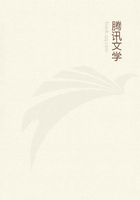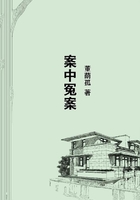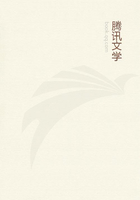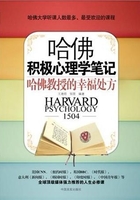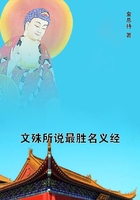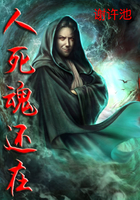2.In loving the people and ruling the state, cannot he proceed without any (purpose of) action? In the opening and shutting of his gates of heaven, cannot he do so as a female bird? While his intelligence reaches in every direction, cannot he (appear to) be without knowledge?
3.(The Tao) produces (all things) and nourishes them; it produces them and does not claim them as its own; it does all, and yet does not boast of it; it presides over all, and yet does not control them. This is what is called 'The mysterious Quality' (of the Tao).
11.The thirty spokes unite in the one nave; but it is on the empty space (for the axle), that the use of the wheel depends. Clay is fashioned into vessels; but it is on their empty hollowness, that their use depends. The door and windows are cut out (from the walls) to form an apartment; but it is on the empty space (within), that its use depends. Therefore, what has a (positive) existence serves for profitable adaptation, and what has not that for (actual) usefulness.
12.1. Colour's five hues from th' eyes their sight will take; Music's five notes the ears as deaf can make; The flavours five deprive the mouth of taste; The chariot course, and the wild hunting waste Make mad the mind; and objects rare and strange, Sought for, men's conduct will to evil change.
2. Therefore the sage seeks to satisfy (the craving of) the belly, and not the (insatiable longing of the) eyes. He puts from him the latter, and prefers to seek the former.
13. 1. Favour and disgrace would seem equally to be feared; honour and great calamity, to be regarded as personal conditions (of the same kind).
2.What is meant by speaking thus of favour and disgrace? Disgrace is being in a low position (after the enjoyment of favour). The getting that (favour) leads to the apprehension (of losing it), and the losing it leads to the fear of (still greater calamity):--this is what is meant by saying that favour and disgrace would seem equally to be feared.
And what is meant by saying that honour and great calamity are to be (similarly) regarded as personal conditions? What makes me liable to great calamity is my having the body (which I call myself); if I had not the body, what great calamity could come to me?
3.Therefore he who would administer the kingdom, honouring it as he honours his own person, may be employed to govern it, and he who would administer it with the love which he bears to his own person may beentrusted with it.
14. 1. We look at it, and we do not see it, and we name it 'the Equable.' We listen to it, and we do not hear it, and we name it 'the Inaudible.' We try to grasp it, and do not get hold of it, and we name it 'the Subtle.' With these three qualities, it cannot be made the subject of description; and hence we blend them together and obtain The One.
2.Its upper part is not bright, and its lower part is not obscure. Ceaseless in its action, it yet cannot be named, and then it again returns and becomes nothing. This is called the Form of the Formless, and the Semblance of the Invisible; this is called the Fleeting and Indeterminable.
3.We meet it and do not see its Front; we follow it, and do not see its Back. When we can lay hold of the Tao of old to direct the things of the present day, and are able to know it as it was of old in the beginning, this is called (unwinding) the clue of Tao.
15. 1. The skilful masters (of the Tao) in old times, with a subtle and exquisite penetration, comprehended its mysteries, and were deep (also) so as to elude men's knowledge. As they were thus beyond men's knowledge, I will make an effort to describe of what sort they appeared to be.
2.Shrinking looked they like those who wade through a stream in winter; irresolute like those who are afraid of all around them; grave like a guest (in awe of his host); evanescent like ice that is melting away; unpretentious like wood that has not been fashioned into anything; vacant like a valley, and dull like muddy water.
3.Who can (make) the muddy water (clear)? Let it be still, and it will gradually become clear. Who can secure the condition of rest? Let movement go on, and the condition of rest will gradually arise.
4.They who preserve this method of the Tao do not wish to be full (of themselves). It is through their not being full of themselves that they can afford to seem worn and not appear new and complete.
16. 1. The (state of) vacancy should be brought to the utmost degree, and that of stillness guarded with unwearying vigour. All things alike go through their processes of activity, and (then) we see them return (to their original state). When things (in the vegetable world) have displayed theirluxuriant growth, we see each of them return to its root. This returning to their root is what we call the state of stillness; and that stillness may be called a reporting that they have fulfilled their appointed end.
2. The report of that fulfilment is the regular, unchanging rule. To know that unchanging rule is to be intelligent; not to know it leads to wild movements and evil issues. The knowledge of that unchanging rule produces a (grand) capacity and forbearance, and that capacity and forbearance lead to a community (of feeling with all things). From this community of feeling comes a kingliness of character; and he who is king- like goes on to be heaven-like. In that likeness to heaven he possesses the Tao. Possessed of the Tao, he endures long; and to the end of his bodily life, is exempt from all danger of decay.
17. 1. In the highest antiquity, (the people) did not know that there were (their rulers). In the next age they loved them and praised them. In the next they feared them; in the next they despised them. Thus it was that when faith (in the Tao) was deficient (in the rulers) a want of faith in them ensued (in the people).
2. How irresolute did those (earliest rulers) appear, showing (by their reticence) the importance which they set upon their words! Their work was done and their undertakings were successful, while the people all said, 'We are as we are, of ourselves!'

